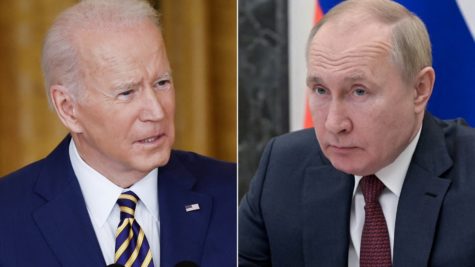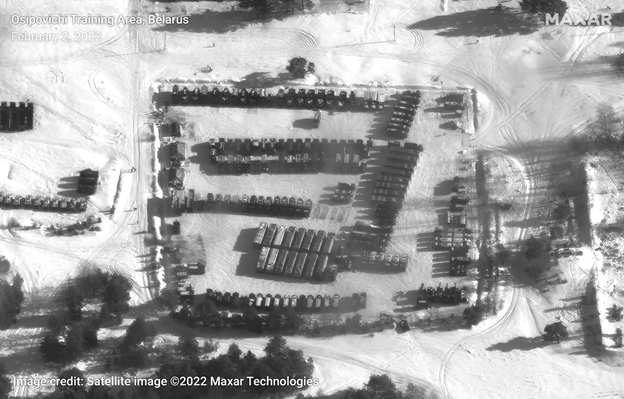Diplomacy must prevail: The war brewing in the East
Russia has consistently made headlines for the past few months due to its growing tensions with Ukraine. The major world power has recently been displaying ominous hostility towards Ukraine, and the majority of the world’s leaders have been looking on nervously. Vladimir Putin, the President of Russia, has been moving Russian troops towards the Ukraine border.
As of Feb 2, there were an estimated 130,000 troops stationed at the border. The Russian military has also been conducting military drills in preparation for their unknown cause. NATO has been working tirelessly to provide military aid to Ukraine, attempting to prepare them for the looming Russian invasion. Russia’s intended course of action is very unclear, but any military confrontation could lead to a worldwide conflict.
The Russian government is playing a dangerous game, pushing the boundaries, toying with the possibility of conquering more Ukrainian land.
Russia and Ukraine have a complicated history. Understanding the past is crucial to understanding the events taking place.
The political rift was created when Ukraine declared its independence following the breakup of the Soviet Union. Much to the dismay of Russia, Ukraine then began forging ties with Western countries. The origins of this specific conflict go back to the year 2013, when Russia and Ukraine first clashed over disputed Ukrainian land. The two countries eventually agreed to a ceasefire after Russia invaded and captured the region of Crimea in 2015. Unfortunately, annexing Crimea was not enough for Russia, and the government began endorsing separatist movements within the country. Even after Russia’s military conquests were halted, they continued attempting to increase their influence within the Ukrainian political system. Evidently, Putin is not satisfied with the minimal political influence he currently holds over his neighbor and is hoping to once again tighten his grip.
This conflict has claimed over 14,000 lives so far and is threatening to claim thousands more if the current situation is not dealt with carefully.
The U.S. is among the NATO members that have risen to support Ukraine.

President Joe Biden has thrust the U.S. into this issue by promising to assist Ukraine in efforts to maintain their land. America has already supplied Ukraine with anti-armor missiles, ammunition, and other combat gear. Biden has mobilized 3,000 U.S troops, sending them to European countries in closer proximity to Ukraine. In addition to the military preparations, there have been flurries of diplomatic meetings. In many of these meetings, Russia has presented itself as deceptively passive and open to discussion. However, when claims made by Russian officials are examined, it is quite evident that proceedings are not nearly as civil as the Russians claim. Putin has accused the U.S. of escalating the situation, saying that we are trying to initiate a war.
He has demanded that NATO be prohibited from seeking to expand Eastwards, and that Ukraine be barred from joining NATO.
Recently, the U.S. claimed Russia was orchestrating a “false flag” operation depicting a fake attack by Ukraine in order to set a precedent for invasion.
If not handled correctly, the Russia-Ukraine conflict could be the beginning of many violent exchanges. This would not be the first time the U.S. has gone to war in recent years, but it would be the first time our opponent possesses nuclear weapons. With all the destructive power on both sides, the outcome of this conflict could decide the fate of the world. NATO and Russia both need to weigh the risk of their actions, and ultimately decide how important their cause is. We must look to our leaders to make wise decision, and to guide us through this time of apprehension. Our foreign relations must stand strong, and we must find a peaceful solution. Russia needs diplomacy to prevail. Ukraine needs diplomacy to prevail. The world needs diplomacy to prevail.
